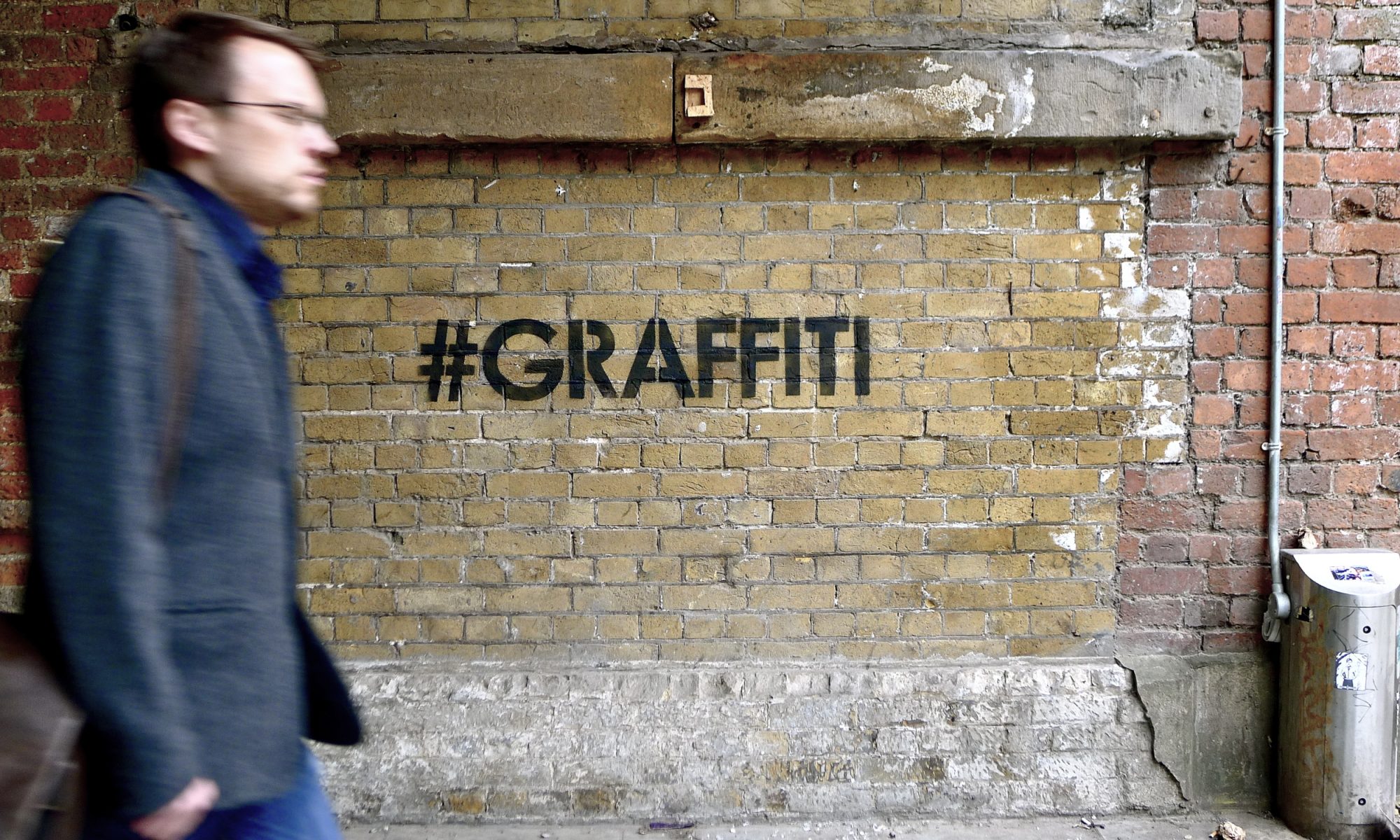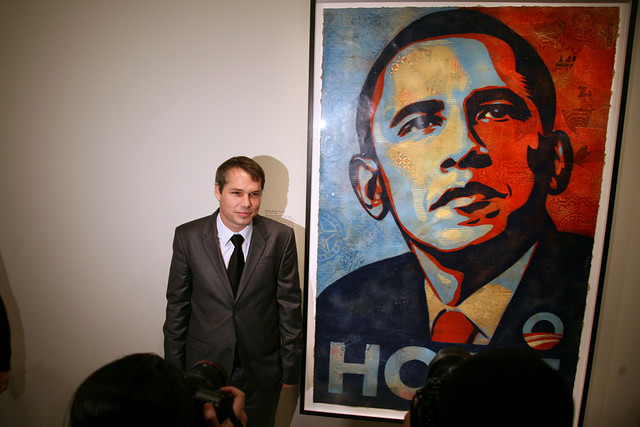On Friday, Shepard Fairey was sentenced to 300 hours of community service, two years of probation and a $25,000 after pleading guilty earlier this year to one count of criminal contempt. Fairey actually got off pretty lightly. Government lawyers believed that Fairey could have been fined up to $3.2 million and also argued that he should spend time in prison (he could have been incarcerated for a maximum of 6 months).
Here’s how we came to this point: In 2009, Fairey sued the Associated Press to show in court that his portraits of Obama were fair use of an AP photograph and avoid being sued by the AP himself for copyright infringement. Fairey and the AP disagreed over which photograph Fairey had used as his source image for the HOPE poster, but they both agreed that Fairey used an AP photo from the same event. Then Fairey realized that he was wrong and that he had indeed based his work on the photograph that the AP said he had used, so Fairey panicked and tried to cover his tracks by submitting falsified evidence and attempting to delete the actual evidence from his computer. He then went ahead for months in this case claiming something that he knew was false. Eventually, Fairey was confronted with evidence of his deceit and came clean. The lawsuit with the AP was settled, with Fairey paying the AP $1.6 million (although some of that is believed to have been covered by an insurance policy). But the federal government was still unhappy about Fairey’s lies, so he was charged with criminal contempt and plead guilty to that earlier this year.
I don’t generally believe in prison time for nonviolent offenders, but Fair Use is an issue close to my heart and damn that still seems like he got off easy, but not for the reason the federal prosecutors think he did. In a statement on Friday, Fairey said, “The damage to my own reputation is dwarfed by the regret I feel for clouding the issues of the Fair Use case. I let down artists and advocates for artist’s rights by distracting from the core Fair Use discussion with my misdeeds.” He’s exactly right: Fairey blew what could have been the biggest Fair Use case of the century. If this case had gone to trial, as Fairey seems to have originally intended it to, and he certainly has to be given some credit for not just settling from the outset, Fairey would have had one of the best legal teams in the country supporting him and hopefully striking quite a blow against overly-restrictive copyright law enforcement.
For more on the case and Fairey’s sentencing, you can check out these other articles:
- Fairey’s full statement on the day of his sentencing.
- Documents from federal prosecutors at The Smoking Gun arguing for a harsh sentence for Fairey.
- The Guardian on the sentencing.
- Bloomberg Businessweek on the sentencing.
Photo by cliff1066™

